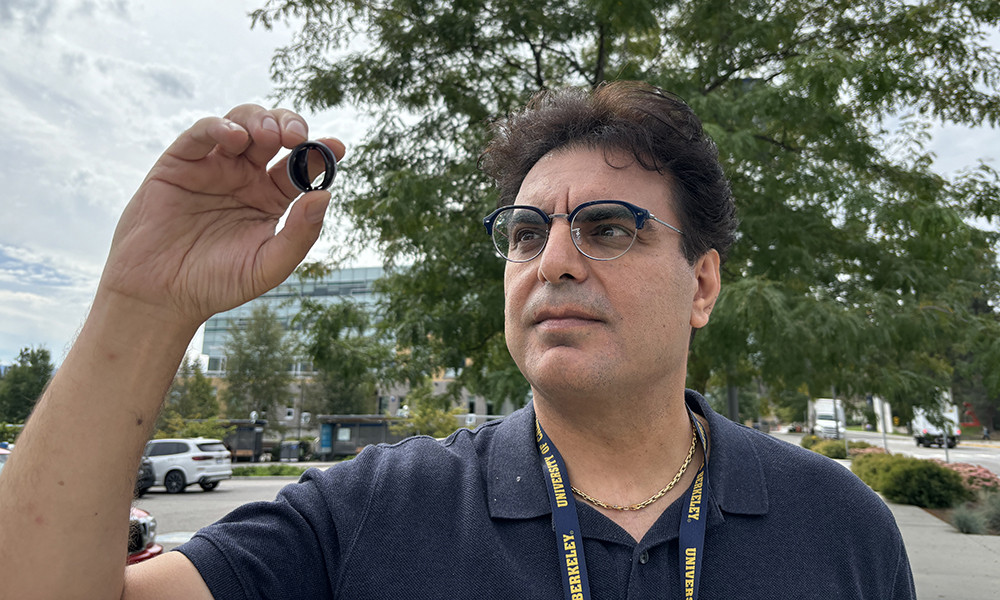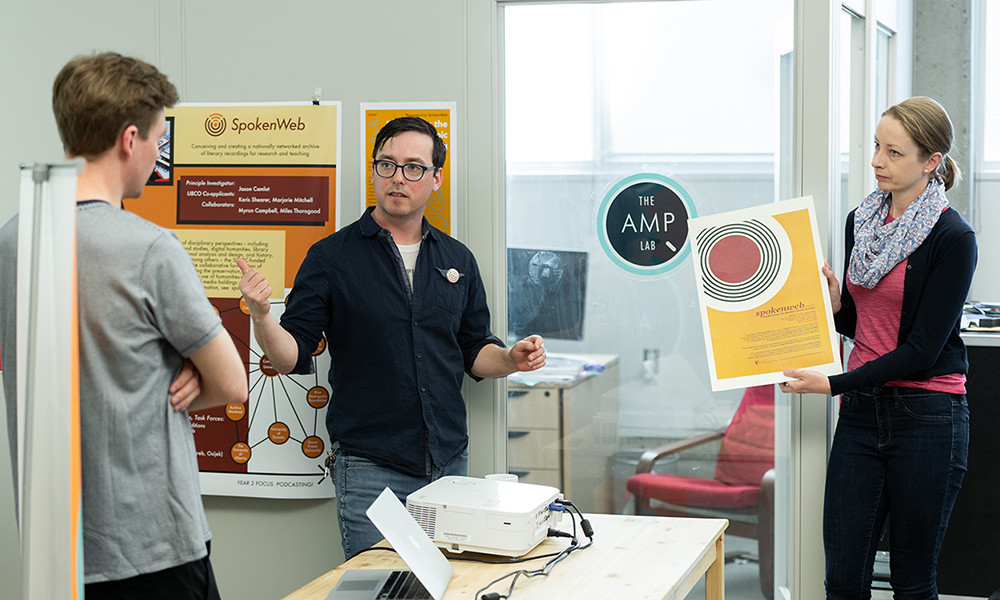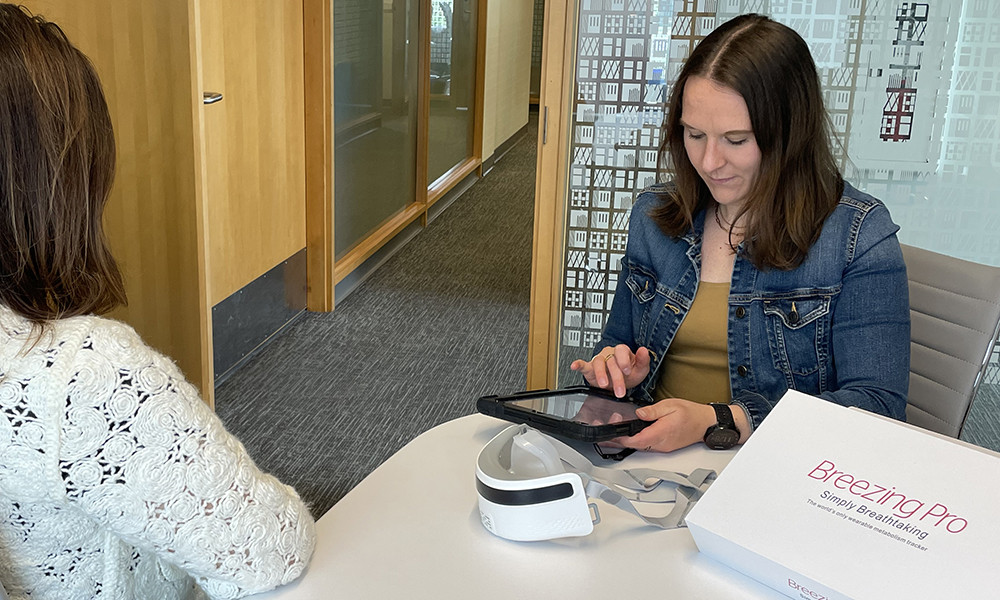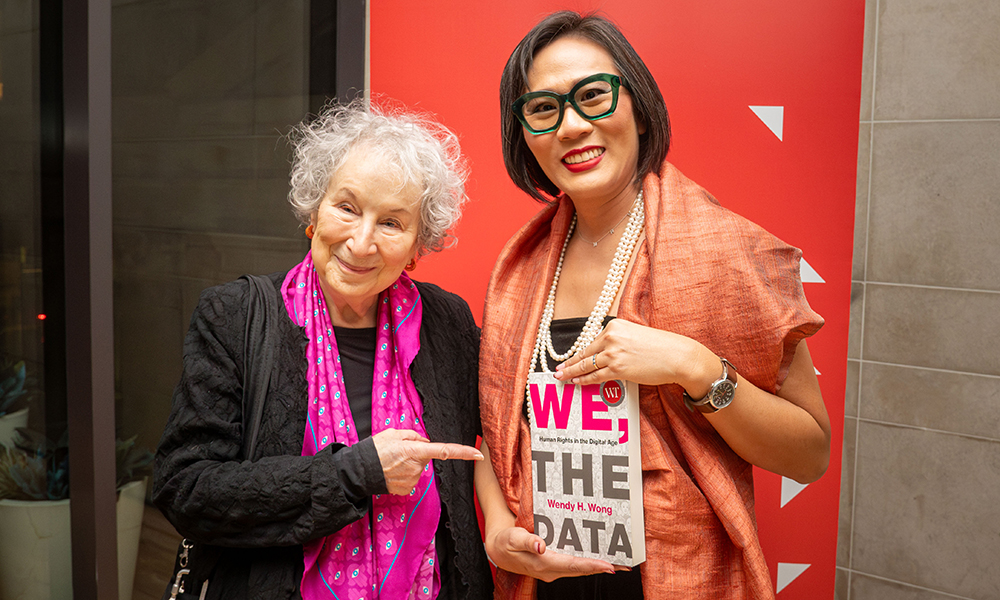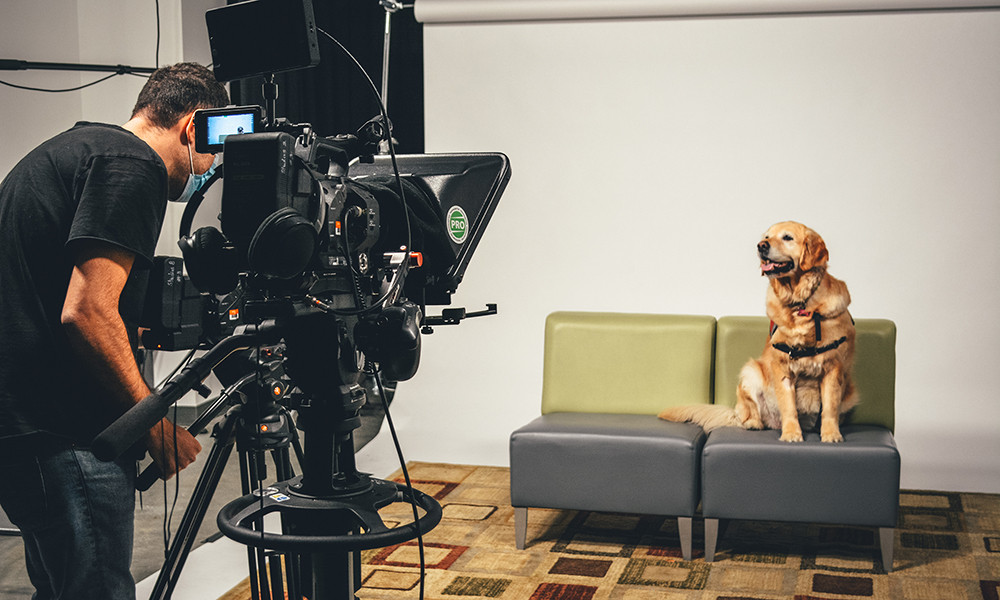
New research from UBCO has determined that even a virtual therapy session with a dog can help reduce a person’s stress. This opens the door to expand the program and improve accessibility to pet therapy.
While it’s well known that spending time with dogs can ease stress, new research shows that watching a short video of a dog can have a similar comforting effect.
Led by Dr. John-Tyler Binfet, Professor in UBC Okanagan’s School of Education, and Dr. Christine Tardif-Williams, Professor at Brock University, this latest research builds on an earlier study examining whether in-person interactions with therapy dogs would translate just as well to a virtual setting—opening the doors for community members to benefit.
“Our findings demonstrate that even with a virtual session, there was a significant reduction in stress among both the student population and the general public, regardless of age,” says Dr. Binfet, Director of UBCO’s Building Academic Retention through K9s (B.A.R.K.) program. “This suggests that virtual canine comfort modules are an effective, low-cost and accessible resource for those seeking mental health supports.”
This research was published in Human-Animal Interactions, an open-access publication showcasing multidisciplinary research on interactions between humans and animals. Co-authors include B.A.R.K. coordinator Freya Green and student researchers Rebecca Godard, Akshat Singal, Camille Rousseau, Renata Roma and Amelia Willcox.
Dr. Binfet sheds light on why the study was conducted and what it means for mental health support.
What inspired this research?
This study was inspired by the need to increase accessibility to therapy dogs. Programs that offer students and members of the public an opportunity to interact with therapy dogs are often located in urban centres and, when offered, are very popular. During the COVID-19 pandemic, restrictions on in-person interactions and the need to shelter in place highlighted an even greater demand for virtual wellbeing supports.
This led to the creation of the virtual canine comfort modules, which featured a pre-recorded video from four of our B.A.R.K. therapy dog and volunteer handler teams. These pre-recorded modules proved effective in improving student wellbeing and this study gave us the opportunity to replicate the service, and extend findings as well as canine therapy, to broader community participants.
What did the study involve?
More than 900 student participants and 120 community members watched a five-minute pre-recorded video featuring a therapy dog and handler. These videos were designed to mimic an in-person experience, including elements like guided reflection, visual engagement with the dog and calming narration. Participants completed a short stress survey before and after watching the video.
The sessions were free, easy to access online and required no appointment or other human interaction.
Why is this research significant beyond campus settings?
The results suggest that virtual therapy dog interventions can also benefit the broader public, particularly those who face barriers to accessing in-person mental health support, such as access outside of normal operating hours or from a remote location.
This format may also be ideal for individuals who are hesitant to seek formal mental health support.
What are the next steps?
This research lays a foundation for additional virtual opportunities for students and the public to engage with therapy dogs and their handlers. This might include incorporating mindfulness into the virtual canine comfort modules and assessing whether this has an added stress-reduction effect on wellbeing.
Regardless, this does reinforce our theory that canine-assisted interventions, whether in person or via teleconferencing, can be beneficial and can help people reduce their stress.
The post Just press play: Virtual dog therapy can improve mental wellbeing appeared first on UBC's Okanagan News.


